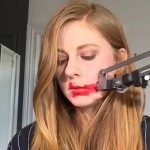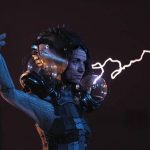All-Inclusive Cyborg Talks
The All-Inclusive Cyborg Talks are presented in the public program of ROBOT LOVE. The lectures and debates, looking at the phenomenon of cyborgism from different perspectives, deepen and sharpen the theme.
The talks take place during the Dutch Design Week 2018.
Pro’s and contras of biological & synthetic symbiosis
Chair: Brendan vos
We do not only become cyborgs at a level that is visible and recognizable to others. Synthetic and biological elements melt together. Not only do we become hybrid people, also what we eat, where we live, with whom we produce offspring will become multivariable. The field, mined by SF authors Octavia Butler and China Mieville, is beyond understanding. We are talking about a difference in kind rather than a difference in degree.
With: a.o. Floris Kaayck, Agnieszka Anna Wolodzko and Jeroen van Loon.
Photo: Anna Dumitriu, Trust me I am an Artist
Read more about the chair:
Brendan Vos
Brendan Vos currently holds a position as a teacher of English and Film at a secondary school. On his way getting there he has studied English Culture and Linguistics, and Film and Television, with specializations in semiotics and narratology. He also worked as a junior film programmer at Natlab_door_Plaza_Futura, curator at TEDxEindhoven and maintains two foundations on instigating and furthering dialogues on media and LGBTqueer issues, Mediahouse Eindhoven and DayDayGay respectively. The driving force behind his work is finding and communicating the (hidden) structures we find in the mundane – be it the languages we speak and own, or how we are still watching what we believe is television on our phones. Curating, lecturing or chairing a discussion as moderator, all go beyond instruction, as far as he is concerned. The point is to provoke, not only through shock, but preferably by laying bare true passion and emotion.
Read more about the speakers:
Agnieszka Anna Wołodźko
We are already multiple and in a constant process of transformations. Becoming a cyborg is our ontological state, yet precarious. We do not know what our mutating bodies can do. Nevertheless, we tend to believe in the informatic essentialism of the biotech that generates new, hyper-biological bodies where biological seems to be more biological, and natural more natural. Bodies are to be purified from diseases, given new imperceptible, yet sustainable capacities so that every enhancement becomes the fulfillment of a dream of an already given idea. In this way, we seem to enforce the difference in kind as our inevitable future, while what we should face with is the challenge of how to live with the continuously changing differences in degree that we are.
Bio: MA in Philosophy (UWM Olsztyn, Poland), MA in The Philosophy of Art History (Leiden University, The Netherlands). She is finalising her PhD in the cultural disciplines at Leiden University where she investigated ways in which art, by using living bodies as its medium, reveal overall cultural, social and political significance of affect in the contemporary understanding of biotechnologically manipulated bodies. Since 2017, she has been coordinating biolab at the AKI Academy of Art and Design in Enschede and lecturing in BIOMATTERs, an artistic research program that explores how to work with living matter. At Leiden University she teaches courses on posthumanism and intersection between art, ethics and biotechnology.
Jeroen van Loon
In his presentation, Jeroen van Loons will present two projects: cellout.me – for which he offered his own DNA for sale for the highest bidder – and Life Needs Internet – for which he has collected handwritten letters since 2010, to research what we think of the influence the internet has on our daily lives. Both works tell us something about the way humans merge with the technology surrounding them. Cellout.me approaches this via a ‘data is gold’ adage, while Life Needs Internet takes the perspective of an archivist.
Jeroen van Loon (NL) has a bachelor’s in digital media design and a European Media Master of Arts at the HKU. His work focuses on the revealing and documenting of our continuously changing digital culture. His work has been exhibited in solo- and groupexhibitions, national and international. In 2014 he received the KF Hein-art stipendium. His work is owned by the Verbeke Foundation, Belgium. Recent exhibitions are Transmediale’s “Alien Matter” 2018, HKW, Germany; “cellout.me” in Aksioma, Slovenia; “Beyond Data”, Central Museum, The Netherlands; “Materialising the Internet”, MU Artspace, the Netherlands; “Object Love”, De Domijnen, the Netherlands; Z33, “Design My Privacy” Belgium, Cyberfest 9, Russia / US / Colombia; V2_, the Netherlands and Tech Art Expo, Berlin.
Ernst Jan Bos
When we claim to have regenerated tissue, have we truly replicated the human body? Apart from the fact that the physiological design of the construct might differ in subtle ways, we have artificially manipulated cells to form new tissue. Most tissues do not regenerate; by circumventing this natural inhibition we have so far managed to gain seemingly exciting results, but generally, they only form a pitiful surrogate of the original. The promise of the stem cell should have solved our transplantation waiting lists by now if we were to believe the media. Yet we have seen few applications in patients. Providing the bricks is not a guarantee that the appropriate building will be erected. We have spent decades trying to bridle the stem cell but so far with very limited success. In bioprinting currently, the most advanced 3D printers are not our machines but the cells themselves. Who’s actually in charge?
Ernst Jan Bos achieved his Medical Degree from the University of Leiden in 2011and has worked on various projects in human tissue regeneration. After working on the regeneration of heart tissue with stem cells at Stanford University he obtained a position as a Ph.D. student at the VU medical center in Amsterdam. There he worked on 3D bioprinting of new ear and nose cartilage for burn victims financed by the Dutch Burn Foundation (Brandwondenstichting). His large network and experience have helped him found various projects in the Med- and BioTech field and he crowdfunded a 100K bioprinter for his university. His vision is that disruptive new applications can only thrive through multidisciplinary collaboration and shared knowledge.
Hendrik-Jan Grievink
Next Nature Network is a global network for everyone who wants to dream, build and live in Next Nature, the nature caused by people. The aim of the network is to share a richer understanding of nature, and fresh perspectives on how to balance biology and technology by means of publications, talks, workshops and exhibitions. In 2014, Next Nature Network was presented with a Dutch Design Award for the In Vitro Meat Cookbook, a cookbook that presents 45 speculative dishes that explore the creative potential of lab-grown meat. Currently, Hendrik-Jan Grievink leads a research project on the impact of technology on biological reproduction, intimacy and relationships. In collaboration with Máxima Medisch Centrum, Next Nature Network presents a speculative prototype for an artificial womb at the Chronic Health exhibition at DDW18.
Hendrik-Jan Grievink is researcher and designer at Next Nature Network and in that position responsible for much of the visual output of the network. He co-edited and designed the award-winning In Vitro Meat Cookbook that explores the future of lab-grown meat through 45 speculative recipes and invented the Pyramid of Technology, a conceptual model and design tool that visualizes how technology becomes nature. Since 2017, Hendrik-Jan is responsible for all workshops in the Next Nature Academy.
Location
Robot Love Expo Experience
Campina Milkfactory
At: Kanaaldijk-Zuid/Hugo van der Goeslaan
5613 LE Eindhoven
Date
Friday, October 26, 2018
10.00 ’till 11.30 a.m.
Doors open: 9.30




